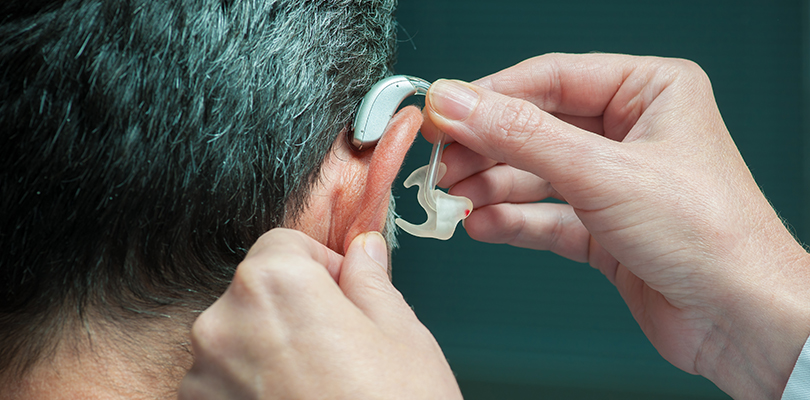Why Am I So Emotional?
It’s not that you’re sad all the time. It’s not that you’re angry all the time or even annoyed all the time. Instead, your moods change wildly from hour to hour and day to day.
Sometimes, it is easy to understand your shifting feelings. When someone makes a thoughtless comment, you get annoyed. When an important event doesn’t go your way, you get angry.
Other times are not so clear, though. You notice you are getting sad or anxious for no reason, and the intensity of your response always seems disproportionate to the trigger because tiny problems produce huge results.
You are emotional. The problem is obvious, but now, you are interested in understanding where this unpredictability stems from.
When you know the source of your symptoms, you can combat them and find a solution. The cause is not always clear since a combination of physical health, mental health, and stress management issues can all contribute.
Possible factors leading towards your unsteady emotions include the following.
Physical Health Problems
Though looking directly at your mental health may seem obvious, taking that step might be premature because there is a range of physical health problems that can result in feeling moody or overly emotional.
People who struggle with changing blood sugar frequently feel anxious when levels are low. Thyroid issues are strongly associated with mood changes and irritability. Problems with moodiness are related to cardiovascular issues. If you are a woman in her mid or late 40s, menopause might be to blame for your problems.
These physical ailments, which are only a small sampling of possible complications, can be identified through a number measures and diagnostic procedures. By treating the primary physical health condition, the mental health effects of being emotion will recuperate.
During your treatment, focus on improving your diet, activity levels, and sleep to further boost your physical state.
Mental Health Problems
If your visits to the physician’s office did not prove successful, it might be time to consider a mental health source of your emotional changes.
There is a range of mental health problems that are related to being moody or overly emotional. There is also a huge amount of misinformation that surrounds mental health, so be sure to avoid self-diagnosis.
Men and women both experience depression, however, their symptoms can be very different. Learn what the differences of depression in men and women are here.
When people think about changing moods and being emotional, they often think of bipolar disorder. If I am happy one minute and sad the next, I must be bipolar, right? No.
Moodiness can be a sign of bipolar disorder, but many more a needed for a diagnosis. Bipolar is marked by having periods of depression with symptoms presenting more often than not for at least two weeks and periods of mania or hypomania lasting for at least four days.
People who are described as “emotional” do not meet the criteria for bipolar disorder.
To be certain of your mental health, seek out an evaluation from a mental health specialist. Depression, anxiety, bipolar disorder, obsessive-compulsive disorder, posttraumatic stress disorder, and other mental health conditions are linked to changing moods, but the risk of these disorders remains low relative to other explanations.
A mental health expert can ask questions to assess your presenting problems and the history of your symptoms to formulate a complete diagnosis appropriate for you.
Poor Stress Management
The third contributor to being overly emotional is probably the simplest and most common: poor stress management.
Everyone has an ever-changing level of stress that is equal to their stresses minus their coping skills. Even when stress is high, effective coping skills can counteract the results of many stressors. The problems come when coping skills are too few or ineffective.
Think about your daily stress. By the time you wake up, you might be at a 50 out of 100. A series of stressors occur during your day causing your number to increase, and without stress management skills, your number will stay high.
Anytime you approach 100, you have an emotional response in the form of an unwanted behavior, negative thought, or problematic feeling, which reduces your stress number only slightly.
Being late to work sparks feelings of frustration. Getting yelled at by your boss causes you to speak more pessimistically. Spilling your afternoon coffee on your pants triggers your decision to storm out of your office crying.
During this day, your emotions were strong and frequently changing. Your level of stress peaked near 100 each time and stayed close to the top making it more likely for even minor stressors to elicit an emotional reaction.
Managing Stress
People who seem calm and collected probably don’t have fewer stressors; they probably have better coping skills to manage their stress. Do you want to finally put stress in its place? Here’s how:
- Acknowledge your levels. People with high levels of stress usually try hard not to think about their stress, but this is a mistake. To improve your stress, you must study it. What makes it better? What makes it worse? Think of your stress level like a thermometer; it is not just high or low — there are many degrees in between.
- Dismiss the contributors. Thinking about your stress may lead you to notice that certain people or things regularly spark your stress. Seek to improve these issues whenever possible. If nothing can be done, avoidance may be your only option.
- Find the positives. Exercise, spend time with friends, watch your favorite movie, listen to a meaningful song, take a long bath, or yell into a pillow. Your mission is to experiment with coping skills that work for you.
- Use prevention more than damage control. Some people only use coping skills as damage control after the stress has happened. These are helpful, but often too little too late. Instead of waiting to use coping skills when stress is high, perform them early and often to keep stress low.
Why are you so emotional? It can be really hard to tell, so take practical steps to assess your physical and mental well-being.
With a clean bill of health, you can focus on the problem of stress management. Find your contributors, avoid the ones you can, and then explore preventive coping skills to reduce your stress to reduce your emotionality and moodiness. You might be a few steps away from the stability you seek.







